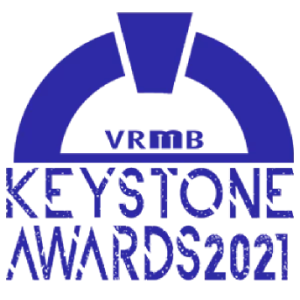Guide to Alberta Short-Term Rental Regulations
From its ice fields to its mountains, Alberta is packed full of natural wonders. No wonder this Canadian province gets millions of visitors each year.
Property owners and investors can find plenty of opportunities in Alberta’s short-term rental market. However, it’s best to familiarize yourself with the current requirements before taking the plunge. Alberta’s rules may be more lenient than elsewhere in Canada but they’re also more complex.
Our guide aims to give you a crash course in Alberta’s short-term rental regulations. Read on to discover the essential requirements for registration and tax plus the rules for its most popular destinations.
Disclaimer: Our guide is intended for informational purposes only and doesn’t constitute legal advice. For guidance on specific cases, please consult a property lawyer.
Short-term rental regulations in Alberta
Alberta doesn’t have many laws at the provincial level. Instead, the government lets the cities and towns decide which regulations to enforce.
However, it’s important to be aware of Alberta’s tourism levy. This 4% fee applies to most short-term accommodation including hotels, inns, and rental units.
You’re exempt if your business:
- Usually accepts guests for over 28 days
- Earns less than $5000 per year (provided it isn’t listed online)
- Hosts your workers while they’re on assignment
- Only provides accommodation to military or government personnel
- Lacks a bed or similar furniture
If you don’t fall into any of these categories, you must register your business with the Alberta government. You can find the application portal
here. Just add your details and wait for the form to be processed and approved.
You must remit the tourism levy every month. Only count the bookings you complete within that timeframe.
Note that you don’t just apply the 4% rate to the total booking costs. Alberta expects you to include all cleaning and maintenance, physical amenities, and services you provided during this time.
The rules are different if you handle the booking through Airbnb or VRBO. In this case, the operator is responsible for registering and handling all the fees. If you’re unsure about your responsibilities, most platforms should provide detailed guidance. For example, Airbnb has the following page on
Alberta’s tourism levy.
Tax requirements for Alberta short-term rentals
As you’re running a business, you’re expected to pay corporate income tax. The current rate in Canada is 38%, which is usually around 15% to 28% after reductions.
Alberta also has corporate income tax. Small businesses only have to pay a fixed rate of 2% on their earnings. If you exceed the $500,000 threshold, this jumps to 8%.
Short-term rental businesses are also subject to Goods and Services Tax (GST). The rate is set at 5% no matter where you are in Alberta.
Note that cities may have their own taxes. That’s why it’s essential to research individual places and potentially contact the local government when setting up your vacation rental business.
Short-term rental rules for popular Alberta destinations
Most of Alberta’s cities and towns have their own rules and guidelines. To give you a better idea of what to expect, let’s explore the local regulations for the province’s most popular cities.
Calgary
The city of Calgary is everyone’s first stop on the way to the Rocky Mountains. Around 8 million people pass through each year.
In response to high tourism levels, Calgary City Council updated its bylaws in 2024. All short-term rental operators are now required to obtain a business license before accepting guests. The bylaw defines a short-term rental as any property or portion of a property you let for under 30 consecutive days at a time.
The ‘Business Licence Bylaw’ (as it’s come to be known) has two tiers:
- Tier 1: Allows one to four rooms and costs $100 for the license plus $110 for a fire inspection
- Tier 2: Allows five or more rooms and costs $172 for the license plus $110 for a fire inspection
You can apply either online or in person. Before you start, ensure you have the following documents and information ready:
- Business details
- Proof of ownership
- Contact information (for operators and homeowners)
- Two types of government-issued ID
Once the government has processed your application, they’ll send you a business license number. Post this in a conspicuous place on the property and in any advertising.
Alberta also has detailed bylaws about how you conduct your business. To meet local safety standards, you must have one egress window per room and display your emergency contact details on the premises. You must also ensure there are no more than two adult guests per room and no overlapping bookings for a single unit.
Edmonton
Most people know Edmonton for its vibrant cultural scene. Alberta’s capital city has over 50 festivals every year, which draws in millions of overnight visitors.
Edmonton has similar regulations to Calgary. The city stipulates that you must obtain a business license for all your short-term rental properties. They say that you must have permission from your local Homeowner’s Association or condo board first.
You can apply for your license online. Make sure you have your personal details, a business plan, and a floor plan to hand.
Planning to make significant alterations to your property? You need a development permit to prove you have permission for all the renovations and construction. If it’s your primary residence, you need this permit for any work that increases your occupancy limit. This includes any developments in your backyard or basement.
Edmonton also provides detailed guidelines for short-term rental hosts and their guests. This aims to reduce the community impact of the city’s high tourism levels. Some of the most noteworthy rules include:
- Keeping the property in good condition
- Making sure all waste is disposed of correctly
- Keeping noise to a minimum between 10 pm and 7 am
- Parking at least 1.5 meters from the driveway
- Sharing and reading a copy of the rental accommodation guidelines
Remember that hosts are responsible for their guests. If neighbors call the city council about any anti-social behavior, you’re the one held liable.
Red Deer
You can find Red Deer around halfway between Calgary and Edmonton. However, don’t think of it as just a pitstop. The city is a beautiful place in its own right, surrounded by forests and waterways, and usually welcomes
thousands of visitors each year.
Red Deer’s laws are relatively relaxed. The main concern is making sure you have applied for a change of use for your property. Local officials use this application to check your business is permitted in that zone and that your guests and staff will be safe.
Banff
Opening a business in Banff might seem like a tempting proposition. After all, the little town is right in the heart of the National Park. However, Banff has strictly prohibited anyone from converting residential properties into vacation houses. Only long-term rentals and traditional tourist accommodation like hotels and B&Bs are permitted.
Canmore
If you were hoping to establish a business in Banff, the nearby town of Canmore may be the next best thing. It allows short-term rentals provided you have a licence.
All you have to do is visit the official
Canmore website. Select the type of license you need based on your location a.k.a where you operate the business. If it’s your principal residence, for example, you should choose the ‘home’ option.
Lethbridge
The town of Lethbridge is just a day trip away from many of Alberta’s best sights. Better yet, it doesn’t have many short-term rental requirements.
All businesses must get a license to operate in Lethbridge. Before you apply, check you have zoning permission and all the other permits and licenses you need. You must attach supporting documents giving evidence for all of these to your application.
Upcoming changes to Alberta short-term rental regulations
Many Canadian provinces and municipalities are tightening their short-term rental regulations. Major cities like Toronto and Vancouver need to find a balance between supporting the local tourism industry and protecting local residents. However, there are very few signs that Alberta plans to do the same.
Meaghon Reid, a spokesperson for Vibrant Communities Calgary, suggested tourist accommodation isn’t significantly contributing to the housing crisis. “Where we’re at right now, in terms of short-term rentals on the market in Calgary, is fine and appropriate,” she said in an interview with
CTV news, “Short-term rentals, in a small amount, do have their place in the market for newcomers, for example, who have nowhere else to live,”

Resources
- Tourism Levy, Alberta
- Corporation tax rates, Government of Canada
- Tax, levy, and prescribed interest rates, Alberta
- GST/HST calculator (and rates), Government of Canada
- Short-term rentals, Calgary,
- Short-Term Home Rentals, Edmonton,
- Change of Use, Red Deer
- Housing, Banff
- Business Licences, Canmore,
- Business Licences, Lethbridge






